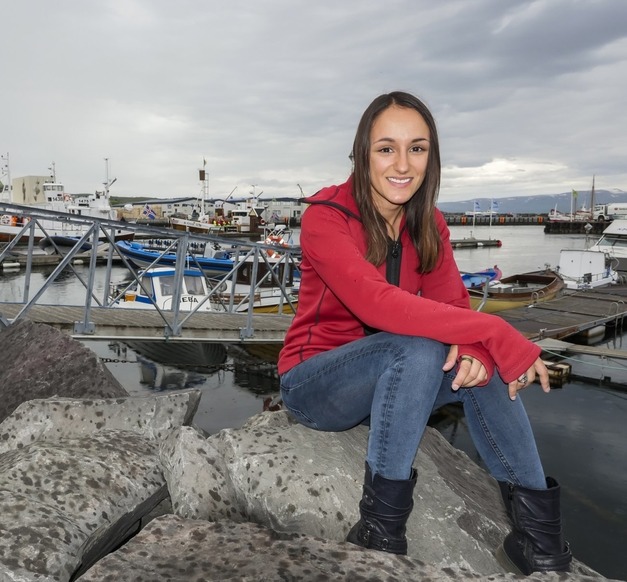Charla Jean Basran, PhD student at the University of Iceland Research Centre in Húsavík
Over 40 percent of Icelandic humpback whales have at some point in their lives become tangled in the fishing tackle of boats off the coast of Iceland. These are the preliminary findings of research by Charla Jean Basran, a doctoral student at the University of Iceland Research Centre in Húsavík.
"We hope that the final results of the project will give us a more precise idea of how many whales get tangled in fishing tackle in Icelandic waters, and how serious the injuries caused are. We also wish to find out the impact this has on the whales' quality of life and fishing here in Iceland. We want to thereby evaluate the impact on the industry but also find ways to reduce the likelihood of these occurrences, which will benefit both the biosphere and the economy."
The methods Charla has used to gather information on the situation of humpback whales in Icelandic waters are based on photographs taken by fishermen and the general public on whale-watching or sailing trips. She has encouraged people to upload their own images of humpback whales to a specific website or send them to her by email. Many responded to the appeal and Charla has received thousands of photographs to analyse. She also uses media reports of accidents of this kind and has submitted a survey to a group of fishermen.
Charla Jean Basran
"Whales are interesting to both scientists and the public, since they are appealing mammals who can tell us so much about the condition of the ocean and the impact we humans have, both on whales themselves and marine resources."

Charla says that a large number of whales are injured by fishing tackle every year and have been known to die of this cause. However, it is not possible to put any numbers on this without further research. She says that humpback whales in Icelandic waters get tangled in all kinds of fishing tackle, but of course the aim is to find out which kind is involved in the majority of cases.
Charla says that she chose this particular project due to her interest in marine mammals as well as a deep interest in the sustainable use of marine resources. "Whales are interesting to both scientists and the public, since they are appealing mammals who can tell us so much about the condition of the ocean and the impact we humans have, both on whales themselves and marine resources. Whales are also intelligent and highly social animals, which means we find it easy to relate to them."
Charla is fascinated by the research and says that science in general is crucial for managing our resources. "Research enables us to better understand the world and make informed decisions about our actions, taking into account the consequences they may have."
Supervisor: Marianne Rasmussen, Director of the University of Iceland Research Centre in Húsavík.


